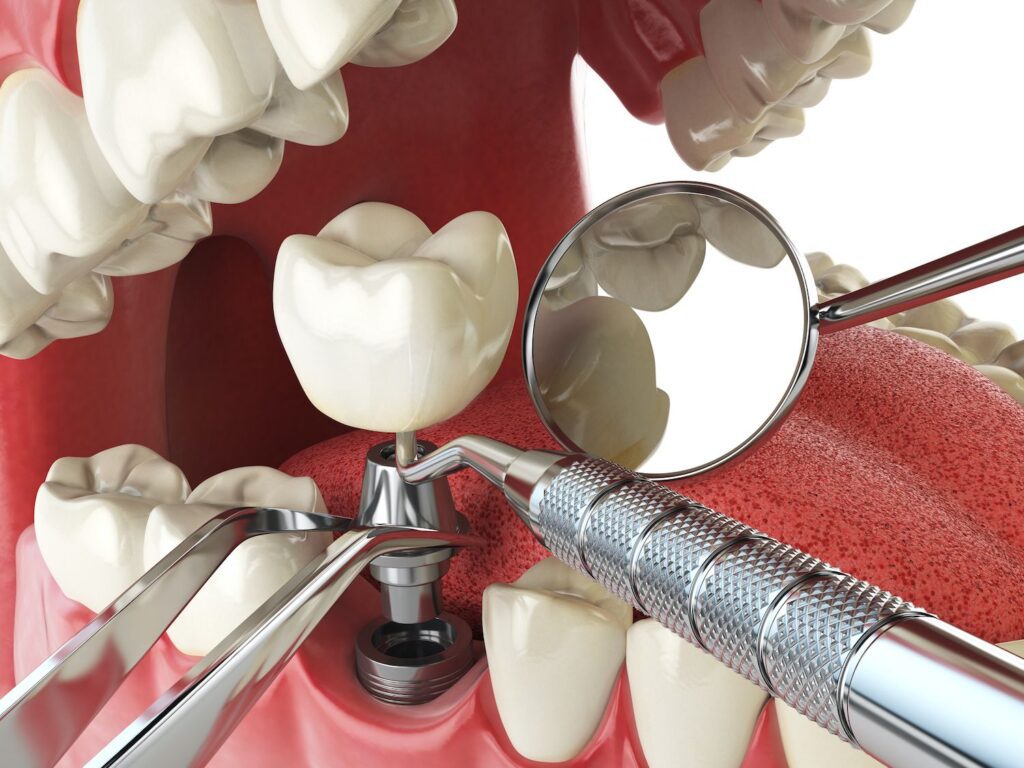When you want a reliable, durable way to replace one or more missing teeth, your dentist might suggest dental implants. These secure into the mouth with a surgically-inserted anchor in the jaw that supports one or more prosthetic teeth. The fixed appliance can give you enduring tooth replacement with the most comprehensive restorative benefits.
Though you know the advantages, you might worry about undergoing dental work. You can feel more confident about upcoming dental procedures when you know what to expect, especially during your recovery. Read on to find responses to three frequently asked questions regarding implant dentistry treatment and the aftermath.

Do Dental Implants Hurt?
A fear of the dentist often stems from the anticipation of pain during a dental procedure. You can feel more relaxed knowing that your dentist prioritizes your comfort during each step of the dental implant process.
The treatment begins with oral surgery to place the anchors of the implant in the jaw. The dentist will give you a local anesthetic to numb the area so that you do not feel anything during this process.
When you return home, the surgical sites might feel sore. But your dentist will also give you pain management advice to minimize discomfort. Severe pain is abnormal, and you should tell your dentist about this right away if it occurs.
When the dentist attaches the prosthetic teeth to the anchors, it can take some time to get used to the feeling of the fixtures in your mouth. But they will not hurt, so you can feel more at ease about this treatment.
How Long Does Implant Dentistry Take to Complete?
Implant dentistry involves a multi-step process that will include three or more visits to your dentist’s office over the course of several months. You will attend an initial consult to confirm this is the best treatment for you. Then you will undergo surgery for the anchor placements.
The recovery from this step and the fusion of the anchors to the jawbone can take three to six months. After you heal, you return to your dentist to receive your dental prosthetics. Make sure you also attend any follow-up appointments that your dentist recommends.
What Aftercare Do I Need for Dental Implants?
One of the advantages of replacing missing teeth with dental implants is that these fixed appliances will not need extra maintenance or care. The prosthetic teeth will resist both staining and decay for long-lasting benefits without requiring separate cleaning like removable dentures would need.
However, you will still need to complete your usual oral hygiene routine. Prosthetic teeth will collect plaque that can spread to your remaining teeth and gums. This could lead to oral health problems that may alter your smile and therefore impact the fit and function of your implants.
So keep up with this diligent at-home dental care and maximize preventative dentistry by attending regular check-ups at your dentist’s office too. Teeth cleanings and oral exams will ensure your implants work as well as they should.
